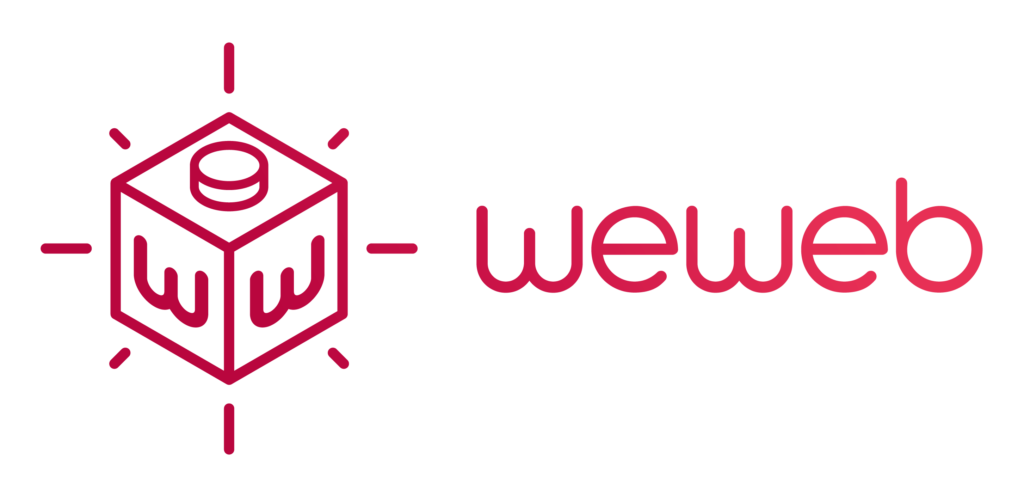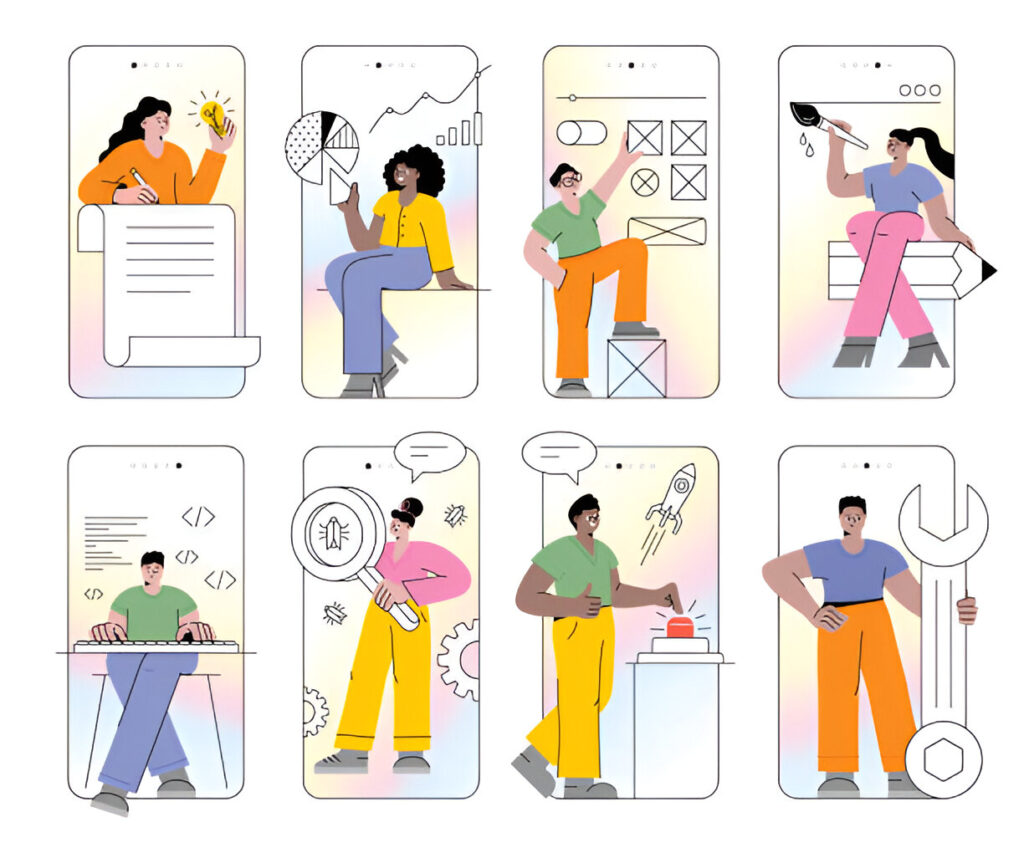Want to build AI apps without coding? Save time and money as No-code AI app builders will help you develop applications without coding skills. To unleash the power of AI and create AI apps without coding, keep your eyes on Tech Blessed to know more.
Key Findings
- The No-Code AI market is growing at 30.6% CAGR by 2030.
- No-Code AI app generator requires no coding skills to build your own apps.
- Platforms like WeWeb, Adalo, FlutterFlow, DraftBit, and Plasmic are top platforms for starting your journey as an AI app developer without code.
Table of Contents
Generally, developing an application requires core knowledge of coding and programming skills. However, the AI revolution empowers development services and anyone can build AI-powered applications without having a core knowledge of the development process or coding skills. According to Grand View Research, the global No-code AI market size was around USD 3.83 billion which is forecasted to increase by 30.6% CAGR from 2024-2030. It means entrepreneurs, tech-savvy, small business owners and anyone including you can build AI apps just in a few minutes.

Sounds interesting right? Want to make your own app now?
This guide will help you explore how you can develop AI apps with no codes quickly and easily in 2024 with the best suggestions. Let’s figure out first the basic concepts of the No-code app generator platforms.
Understanding No-Code Platforms
What is a No-Code AI Platform?
No-code AI platforms enable the creation of applications without the need for coding or traditional programming. These platforms come pre-equipped with built-in AI features, allowing users to simply drag and drop tools from the application developer interface. This empowers non-developers to effortlessly build their own apps without writing any code.

Key features of No-Code AI platforms
Drag-and-Drop Builders: This helps to reduce the time that is taken to create an application.
Pre-Built AI Modules: Allow users to add AI features such as chatbots and predictive analytics without having to write any code at all.
User-Friendly Interfaces: This can be completed by anyone without prior experience with programming or calculations.
Advantages of No-Code platforms over traditional Coding
Speed: Build apps in a fraction of the time.
Cost: Get more of your projects launched/implemented while demanding less of your development resources.
Accessibility: Bring technology closer to the man and do not require him to be a technician.
Source: WeAreNoCode
Top 5 No-Code AI App Builder Platforms in 2024
1. Flutterflow
Features and Benefits:
- Powerful AI generation and responsive design capabilities.
- Extensive library of pre-built components.
- Focus on mobile-first development.
How to Get Started:
- Register a new account on Flutterflow.
- Design your app using their visual editor.
- Use AI with integrated tools and plugins.
Ratings based on Features
- Features: 8/10
- Usability: 9/10
- Beginner-friendly: Yes
- Performance: 8/10
- Pricing: Varies
- Overall Score: 8/10

2. WeWeb
Features and Benefits:
- Excellent usability and affordability.
- Professional interfaces for using AI technologies.
- User-friendly drag-and-drop interface.
How to Get Started:
- Sign up on WeWeb’s website.
- Select your layout and start customizing.
- Insert AI elements with the help of their simple tools.
Ratings based on Features
- Features: 9/10
- Usability: 9/10
- Beginner-friendly: Yes
- Performance: 8.5/10
- Pricing: Affordable
- Overall Score: 9/10

3. Adalo
Features and Benefits:
- Robust performance and extensive customization options.
- Seamless integration with various AI services.
- Clean, intuitive design interface.
How to Get Started:
- Register on Adalo.
- Select a template or start from scratch.
- Utilize their AI components to enhance your app.
Ratings based on Features
- Features: 8.5/10
- Usability: 8/10
- Beginner-friendly: Yes
- Performance: 8/10
- Pricing: Reasonable
- Overall Score: 8.5/10

4. DraftBit
Features and Benefits:
- Well-balanced features and usability.
- Strong community support and extensive documentation.
- Easy deployment to app stores.
How to Get Started:
- Register on DraftBit.
- Select a template or start from scratch.
- Utilize their AI components to enhance your app.
Ratings based on Features
- Features: 8/10
- Usability: 8.5/10
- Beginner-friendly: Yes
- Performance: 8/10
- Pricing: Reasonable
- Overall Score: 8.5/10

5. Plasmic
Features and Benefits:
- Solid performance and flexibility in design.
- Integration with popular AI services.
- Comprehensive drag-and-drop design tools.
How to Get Started:
- Sign up on Plasmic’s platform.
- Design your app using their visual editor.
- Add AI features and publish directly to app stores.
Ratings based on Features
- Features: 8/10
- Usability: 8/10
- Beginner-friendly: Yes
- Performance: 8/10
- Pricing: Varies
- Overall Score: 8/10

Step-by-Step Guide to Creating an AI App Without Coding
Step 1: Define Your App’s Purpose and Functionality
Identifying the Problem Your App Will Solve:
- Clearly articulate the problem your app addresses. This will guide your development process.
Outlining Core Features:
- List essential features that your app must have to solve the identified problem effectively.
Step 2: Choose the Right No-Code Platform
Comparing Platform Capabilities:
- Assess platforms based on your app’s needs. Consider ease of use, available AI features, and pricing.
Selecting Based on Your Needs:
- Choose a platform that aligns best with your app’s requirements and your level of expertise.
Step 3: Design Your App Interface
Using Drag-and-Drop Builders:
- Utilize the drag-and-drop tools provided by the platform to create your app’s layout.
Best Practices for User Experience (UX) Design:
- Ensure your app is intuitive and user-friendly. Good UX design enhances user satisfaction and retention.

Step 4: Integrate AI Features
Adding AI Capabilities Like Chatbots and Predictive Analytics:
- Use pre-built AI modules to add functionalities such as chatbots for customer service or predictive analytics for data insights.
Leveraging Pre-Built AI Modules:
- Take advantage of the AI tools available on your chosen platform to streamline integration.
Step 5: Test Your App Thoroughly
Importance of Testing:
- Rigorous testing helps identify and fix bugs, ensuring a smooth user experience.
Tools and Methods for Effective Testing:
- Use platform-specific testing tools and gather user feedback to refine your app.
Step 6: Deploy and Market Your AI App
Launching Your App on App Stores:
- Follow the platform’s guidelines for publishing your app on app stores like Google Play and Apple App Store.
- Tools such as App Store Connect for iOS and Google Play Console for Android can assist.
Strategies for Effective Marketing:
- Utilize social media, content marketing, and SEO to promote your app and attract users.
- Consider using analytics tools to monitor app performance and user engagement.
Source: Adrian Ching
Essential Factors for Post-App Development
1. Code Export
- Role: The code export feature generates code snippets based on natural language descriptions.
- When to Use: After app development, when you need quick code generation for repetitive tasks or prototyping.
- Why Use: Saves time, reduces manual coding effort, and ensures consistency.
2. Automated Testing
- Role: Automated testing tools (e.g., Selenium, PyTest, Unittest) execute test scripts automatically, validating software functionality.
- When to Use: Throughout the development lifecycle—unit tests during coding, integration tests, and regression tests.
- Why Use: Increases test coverage, detects issues early and accelerates feedback loops.
3. Version Control
- Role: Version control systems (e.g., Git) manage code versions, track changes, and facilitate collaboration.
- When to Use: Always—from the start of a project to ongoing maintenance.
- Why Use: Ensures code integrity, enables collaboration, and provides a history of changes.
Although no-code AI platform helps to build AI apps without code, it is essential to maintain the no-code AI apps after launching. Hence, these tools play a crucial role in maintaining code quality, efficiency, and collaboration after developing and launching AI apps without coding.

Final Thoughts: Embrace the No-Code Revolution
With the rise of no-code AI platforms, you can easily create AI apps without coding and without having good command over technical, programming and coding skills. Start exploring these tools and unleash your creativity.
Don’t wait—begin your journey into AI app development without coding and transform your innovative ideas into reality. For getting more unique updates on AI Revolution stay connected with Tech Blessed.



